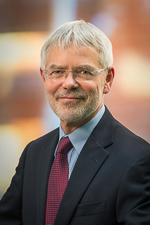ARCHIVED: NOT AVAILABLE FOR CREDIT
Human Microbiome in Health and Disease
Microorganisms have long been known to play an essential role in digestion and gut physiology. The advent of next-generation sequencing (NGS) and advanced informatics has accelerated research in this area, revealing complex signaling networks between microbes and their hosts beginning before birth. The role of the microbiome in health and disease is the focus of research that spans many disciplines, from nutrition and immunology to cardiology and neuroscience.
This presentation will review basic concepts of microbiome science, with a focus on advancements that suggest important causal relationships between the human microbiome and disease.
Originally presented on March 30, 2017, in Salt Lake City, Utah.
Lecture Presenter
 | David R. Hillyard, MD Professor of Pathology |
Dr. Hillyard is a professor of pathology at the University of Utah School of Medicine. Dr. Hillyard received his MD from the Columbia University College of Physicians and Surgeons. His training was in anatomic and clinical pathology, with fellowships in medical microbiology and microbial genetics.
Objectives
After this presentation, participants will be able to:
- Discuss the sequence of events leading to the establishment of a healthy microbiome during infant development.
- Compare the role of prebiotics and probiotics in establishing and maintaining healthy microbiomes.
- List four human diseases for which microbiome disturbances have been implicated as a causal factor.
- Describe the role and challenges of NGS in microbiome research.
- Discuss the indications and effectiveness of fecal transplantation in the control of Clostridium difficile infection.
Sponsored by:
University of Utah School of Medicine, Department of Pathology, and ARUP Laboratories
 Site Search
Site Search

